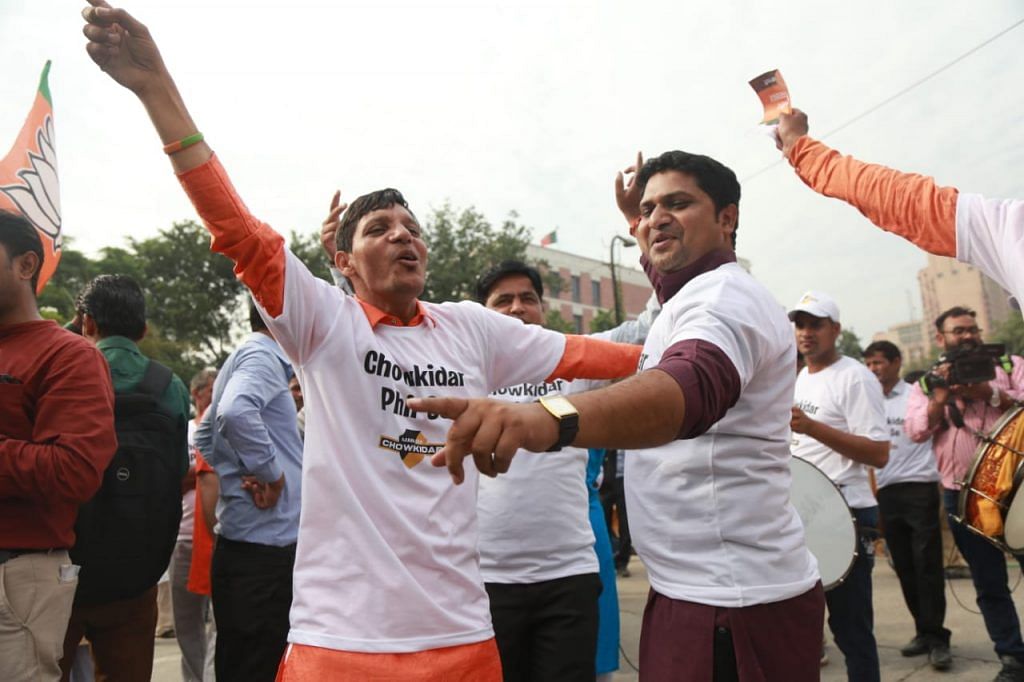India’s most hostile Lok Sabha elections in recent memory has ended but the Election Commission’s brush with public criticism seems far from over. For an institution with the critical responsibility of ensuring a free and fair election, any damage to the Commission’s reputation will set off a credibility crisis affecting the entire system. But modern political and organisational theories can guide us through this challenge by allowing us to assess where an institution ‘under crisis’ stands — perception — and where it’s headed — direction.
In order to figure out how best to judge the Election Commission’s “conduct” before, during and after the 2019 Lok Sabha elections, a democratic theory suggests you analyse its actions either in terms of procedural or instrumental notion. Under the former, the institution will seem “fair” as long as its procedures are fair; in the latter, procedural fairness doesn’t matter as long as the “outcomes” are fair.
Organisational change theories dictate that either external shocks or powerful personalities often effect important shifts. For instance, a TN Seshan-like figure can push an institution towards a potentially transformative moment. But with a head like Chief Election Commissioner (CEC) Sunil Arora, the institution itself suffers a branding crisis.
Absence of procedural equality
The Election Commission’s behaviour during this Lok Sabha election provides a compelling dilemma.
It seemingly did not follow procedural equality, even though adhering to it would not have had an impact on the outcome of the electoral process. Thus, there is no instrumental value here.
The prime reason for the absence of procedural equality is that the EC continued to deliberately enforce old norms, while the political environment around it has effectively changed post-2014. The political actors abused ambiguous EC norms, further undermining the institution.
The critics of the institution argue that while the EC took sufficient punitive actions against opposition leaders like Samajwadi Party’s Azam Khan and Bahujan Samaj Party’s Mayawati for violating the Model Code of Conduct (MCC), it chose to completely look the other way when Prime Minister Narendra Modi or Bharatiya Janata Party president Amit Shah violated the code through communal speeches and politicisation of the armed forces. CEC Sunil Arora has been accused of partisanship.
The criticisms received institutional support when one of the Election Commissioners, Ashok Lavasa, publicly claimed that his dissent notes against clean chits to Modi and Amit Shah were being systematically ignored and not made public.
Robert Dahl, a former Yale University political theorist, has pointed out that the key problem of procedural institutions is that they systematically risk stifling minority opinions. This is evident in Lavasa’s dissent being consistently ignored.
The institutional design of the EC is such that, while Lavasa has equal right to vote, his opinions are and can be constantly sidelined.
Outdated, out of touch
The troubling part is that even if the EC had acted fairly and censored Modi and Shah — followed procedural equality — it would still have struggled to make the 2019 elections fairer because it lacks the robust tools to do so.
Instrumental ideas of democratic theory suggest that for an institution to be fair, the outcomes of its institutional process need to be fair.
Beyond the model code violations and the Election Commission’s biased response to them, there is a long list of critiques posed against the institution.
Critics argue that the election commissioners are political appointees. Campaign finance in India continues to be an opaque black box, and the EC has made no efforts to make the process more transparent. This has gotten worse with the introduction of the non-transparent electoral bonds, which has helped the BJP corner a disproportionate level of campaign fund raising – evident from the electoral bond sales over the past couple of years.
Even the model code of conduct rules do not have statutory backing. As a consequence, the proceedings are not quasi-judicial and a reasoned order is not a requirement.
Owing to these factors, when a government with authoritarian tendencies comes to power, it is easy for it to walk over the EC.
Reforming the EC
Before one could look at the possible ways of reforming the Election Commission, it is important to understand what has made it so inefficient.
In a research paper titled, “Drift and Conversion: Hidden Faces of Institutional Change,” academics Jacob Hacker, Kathleen Thelen and Paul Pierson look at how institutions go through “drift” and “conversion”.
The authors show that institutional drift happens when the rules and norms are deliberately kept constant in the face of an environmental shift. This causes the outcomes to change. Since the BJP came to power in 2014, the political environment has been transformed. While the EC continues to operate by the old rules of the game, the BJP has made Indian elections way more presidential, media-centric, and money-fuelled.
On the other hand, institutional conversion happens when political actors twist ambiguous rules and norms to their own advantage, like in the case of NaMo TV. The EC was unequipped to deal with this.
Institutional change usually takes two forms. Either it happens incrementally or through a revolutionary process — an external shock. When such an external shock happens, the institution needs to be ready to adapt to it and transform itself.
The current crisis surrounding the Election Commission’s credibility could potentially be such an external shock. But it remains to be seen whether this institution has the capacity and flexibility to transform itself as per today’s predatory political environment.
